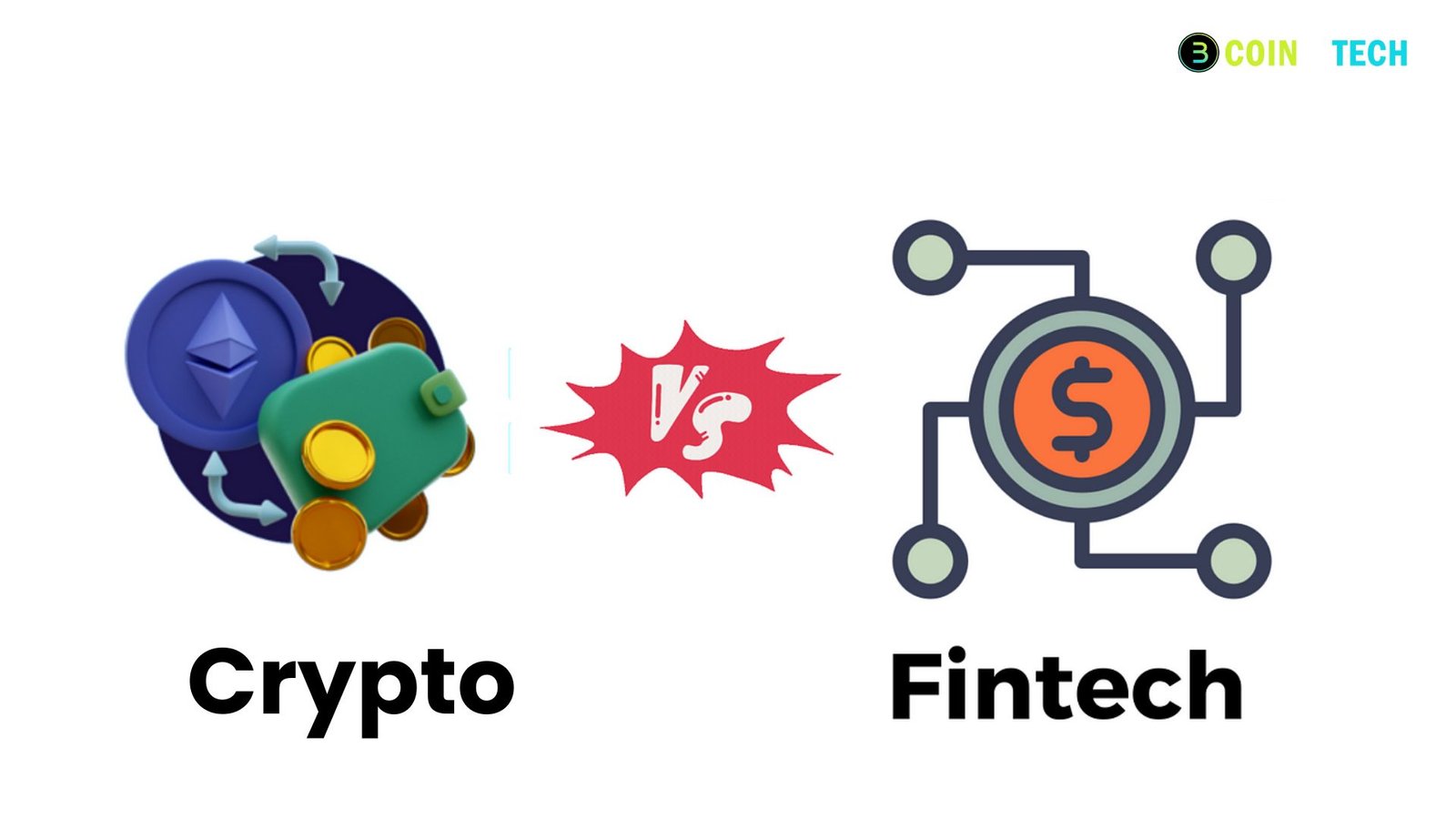Two significant trends have recently taken the financial world by storm: fintech (financial technology) and cryptocurrencies. While both disrupt traditional finance, their objectives, mechanisms, and impacts differ in key ways. Understanding the distinctions between these two technologies is crucial for anyone navigating the rapidly changing landscape of global finance.
What is Fintech?
Fintech refers to the application of technology to improve financial services. It encompasses many innovations, including mobile banking, online payment platforms, robo-advisors, peer-to-peer lending, and digital wallets. Fintech companies aim to make financial processes more efficient, accessible, and user-friendly by leveraging modern technology. Key players in fintech include established companies like PayPal, Square, and Stripe and a vast array of smaller startups.
At its core, fintech is about modernizing and optimizing traditional financial services. It introduces new ways for consumers to manage their money, borrow, invest, and interact with financial institutions. Digital banking apps, for example, allow users to transfer funds, pay bills, and track expenses in real-time without visiting a physical branch.
What is Cryptocurrency?
On the other hand, cryptocurrency represents a revolutionary shift in how value and transactions are perceived. Unlike fintech, which works within the framework of traditional finance, cryptocurrency seeks to redefine it altogether. Cryptocurrencies like Bitcoin and Ethereum are decentralized digital currencies that use blockchain technology to secure and verify transactions. These assets are not controlled by any central authority, making them immune to government manipulation or regulation in the same way as fiat currencies.
Blockchain, the technology behind cryptocurrency, acts as a distributed ledger where transactions are recorded across multiple computers, ensuring transparency and security. While fintech typically enhances the existing banking system, cryptocurrency operates outside it, seeking to create an alternative financial ecosystem that prioritizes decentralization and privacy.
Key Differences Between Fintech and Crypto
Fintech and cryptocurrency aim to disrupt the financial industry, but their paths are vastly different. Here’s a closer look at their core distinctions:
Centralization vs. Decentralization
One of the most significant differences between fintech and cryptocurrency is how they approach centralization. Fintech innovations often work in tandem with banks, regulators, and financial institutions. Even the most groundbreaking fintech platforms, such as digital payment systems or robo-advisors, operate within the regulatory frameworks established by governments and central banks.
Cryptocurrency, on the other hand, is fundamentally decentralized. Cryptocurrencies like Bitcoin operate independently of central authorities, using blockchain technology to eliminate the need for intermediaries like banks. This decentralization allows for peer-to-peer transactions without the oversight of traditional financial institutions.
Regulation and Compliance
Fintech companies operate within established regulatory environments, adhering to rules set by financial regulators such as the U.S. Securities and Exchange Commission (SEC) or the Financial Conduct Authority (FCA) in the UK. These regulations are designed to protect consumers, ensure transparency, and maintain the integrity of financial markets.
Cryptocurrency operates in a more ambiguous regulatory space. Many governments are still grappling with how to regulate crypto, and the decentralized nature of blockchain technology makes enforcement difficult. While some countries have embraced cryptocurrencies and blockchain (such as El Salvador, which made Bitcoin legal tender), others have imposed strict regulations or outright bans.
The lack of regulation in the crypto space can be a double-edged sword. On the one hand, it offers freedom from government control, appealing to individuals who prioritize privacy and autonomy. On the other hand, this lack of oversight has led to concerns about fraud, money laundering, and other illicit activities.
Innovation in User Experience vs. Technology
Fintech’s primary focus is on enhancing the user experience. The goal is to make financial services more accessible and convenient for consumers and businesses. Examples include mobile banking apps that allow users to manage their accounts from their smartphones, robo-advisors that provide automated investment advice, and peer-to-peer lending platforms that connect borrowers with investors directly.
Cryptocurrency’s innovation, meanwhile, lies in the underlying technology. With its potential for decentralized and secure transactions, blockchain technology is the key driver behind the crypto revolution. While crypto platforms like decentralized finance (DeFi) offer new ways to lend, borrow, and trade assets, newcomers’ learning curve can be steep. Many crypto platforms lack the user-friendly interfaces of fintech applications, though efforts are being made to simplify the experience for everyday users.
Purpose and Philosophy
Fintech and cryptocurrency were born out of different philosophies. Fintech is fundamentally about efficiency and optimization. It seeks to enhance the traditional financial system, making it more agile and responsive to consumer needs. Whether it’s enabling faster payments, reducing the cost of transactions, or providing more personalized investment options, fintech is designed to improve the existing financial ecosystem.
Cryptocurrency, by contrast, is often driven by a more radical philosophy. Many early crypto adopters were motivated by a desire for financial freedom and autonomy, especially in response to the centralized control of governments and financial institutions. The first cryptocurrency was created in the wake of the 2008 financial crisis as an alternative to the traditional banking system, which many viewed as corrupt or inefficient. The ethos of cryptocurrency is rooted in decentralization, privacy, and a belief in the democratization of finance.
Overlap and Collaboration
Despite their differences, fintech and cryptocurrency are not mutually exclusive. There is a growing overlap between the two sectors. Many fintech companies are exploring how to integrate blockchain and cryptocurrencies into their platforms. For example, fintech payment companies like PayPal and Square now allow users to buy, sell, and hold cryptocurrencies. Banks and financial institutions also experiment with blockchain technology to streamline operations and enhance security.
Moreover, decentralized finance (DeFi), a subset of the crypto world, is beginning to blur the lines between fintech and crypto. DeFi platforms allow users to lend, borrow, and trade assets without the need for intermediaries like banks, using smart contracts and blockchain technology to facilitate these transactions. This convergence of fintech and crypto demonstrates that the two technologies are not necessarily competing but can complement each other in certain areas.
Challenges and Risks
Both fintech and cryptocurrency face significant challenges as they continue to evolve. Fintech companies must navigate complex regulatory landscapes and deal with cybersecurity threats. As they handle sensitive financial data, they are attractive targets for hackers. Additionally, fintech firms often rely on traditional banks and financial systems, which can be vulnerable to changes in banking regulations or infrastructure.
Cryptocurrency faces challenges, including regulatory uncertainty, market volatility, and security concerns. The decentralized nature of crypto makes it difficult to regulate, which has led to concerns about fraud and illegal activity. Furthermore, the volatility of cryptocurrencies can make them a risky investment, as prices can fluctuate dramatically over short periods.
The Future of Fintech and Cryptocurrency
The future of both fintech and cryptocurrency is promising, but their paths will likely diverge in key ways. Fintech will continue to work within the traditional financial system, improving how consumers and businesses interact with money. With advancements in artificial intelligence, machine learning, and biometric security, fintech has the potential to revolutionize banking, investing, and financial management.
Cryptocurrency, on the other hand, represents a more radical shift. As blockchain technology matures, we can see the development of entirely new financial ecosystems that operate outside the control of governments and central banks. While the road ahead for crypto is uncertain, its potential to disrupt global finance is undeniable.
Conclusion
Fintech and cryptocurrency are reshaping the financial landscape, but they are doing so differently. Fintech aims to optimize the existing system, while cryptocurrency seeks to create a new one. As these technologies evolve, they may converge unexpectedly, offering new opportunities for consumers, businesses, and investors. Understanding the strengths and limitations will be key to navigating the future of finance.






